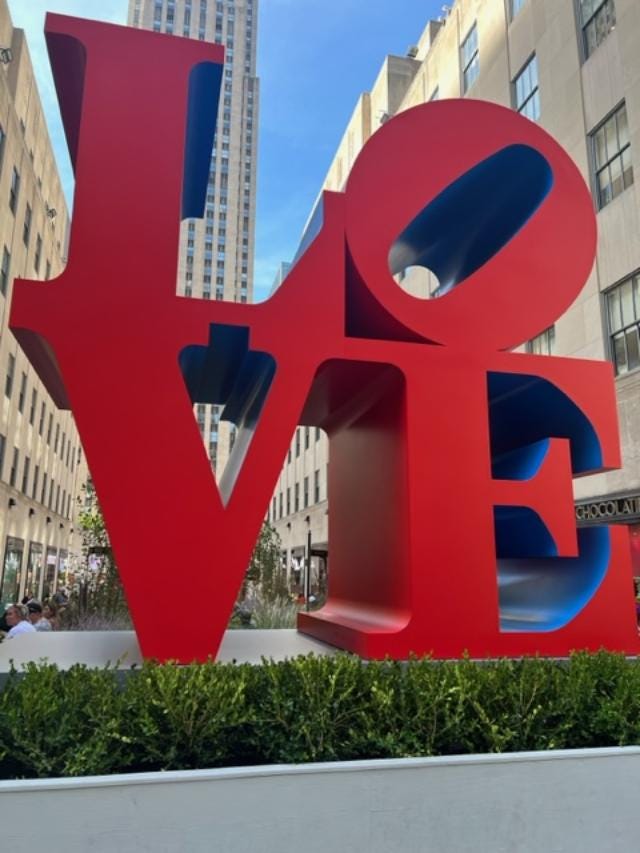In an Unspeakable Time…Thanksgiving…Gratitude?
It is lunchtime on a blue sky day in Washington, DC. Outside on the restaurant patio where I’ve had breakfast and have been writing, patrons sit among red and pink flowers and flora tinged with autumn discussing the tangle of Washington politics—still no Speaker of the US House of Representatives at this writing a week ago—chaos in the Middle East after unspeakable brutalities and destruction, intensive fighting continuing in the Ukraine and the borders of Russia. There is a sense of the world pulling apart at the seams of international order.
We have felt stress and strain before, but for historic and emotional reasons, this period feels more acute. Yet the sun is shining, and the patterns of daily life remain uninterrupted for most Americans, including those in Washington, DC. The disruption is in our personal response and emotional reaction to the events at home and abroad.
When friends and acquaintances grow especially upset by political events, I sometimes quietly ask, “Did the President call you today?” Or “Did your Senator, House representative manage to reach you for advice?” No. Though our advice and feelings are often shared with anyone who will listen, in a democracy, our voice is usually heeded indirectly, at least on national and international matters.
We rely on our ability to think and feel freely to interpret events we have no direct role in shaping unless perhaps we’re in the media whose function is to inform so we citizens can react intelligently. We can write letters, text, phone, join peaceful demonstrations and let our views be known. We can join organizations, political and nonpolitical, contribute our work, wealth, and wisdom to effect change, but as a citizenry, our direct opinion is only sought every few years at the ballot box.
So how can we contribute to a more harmonious outcome in world affairs, or even local affairs utilizing our freedom to think and to speak? Tragedies often bring societies together to help each other and unite, but when societies define themselves in oppositional terms, unity and goodwill quickly dissipate and turn into a hardened will to dominate and prevail.

As a writer, words have been my medium, even if the reach is circumscribed. But as I’m watching alarming events and behaviors thousands of miles away in the Middle East and in Europe, words feel inadequate to resolve and to inspire.
The primary mandate in Article 1 of the United Nations Charter is “to maintain international peace and security and to that end to take effective collective measures for the prevention and removal of threats to the peace, and for the suppression of acts of aggression or other breaches of the peace.” Is this the goal, the light to be sought and followed? How can the individual citizen’s thought and actions contribute?
The only answers I have come to begin with one. Begin with each. Begin with the smallest, yet largest need to see the good, a good, and build from there. The risk of Pollyanna thinking is profound. I hear voices deride, but my hope is that here is the beginning of prayer which can link to a higher and benevolent Principle governing us all. Yet even as I write that, I hear the commentator this morning saying, “If politicians begin with ‘I hope…’ they have already lost. Hope is not a strategy.” So perhaps not hope, but determination to find and build upon that which words only represent—love, humanity, freedom.… Are those adequate words? What are the words? Or perhaps where is the thought? I sometimes wish I were a musician. I can almost hear the harmony in my head, but I don’t know how to render the notes….
Join me on Substack
